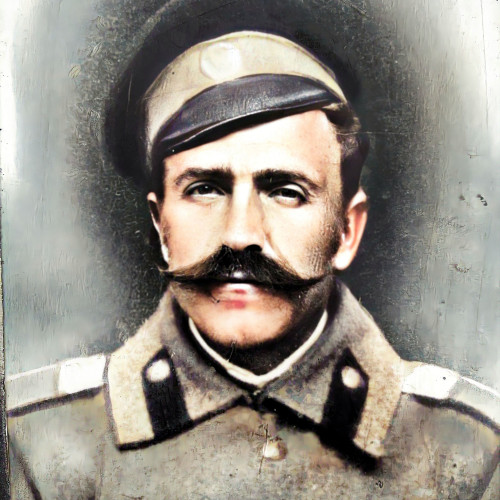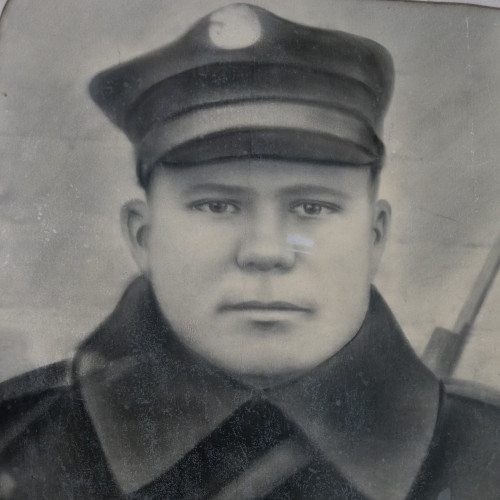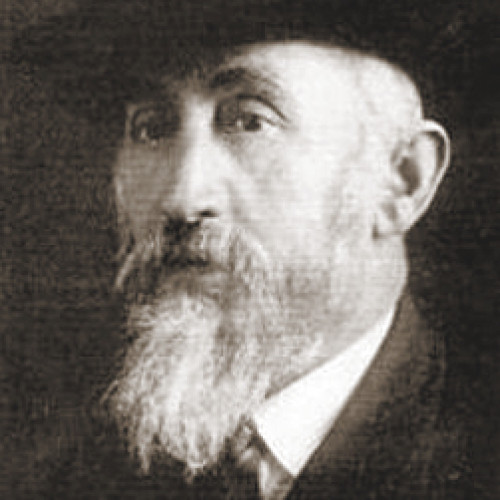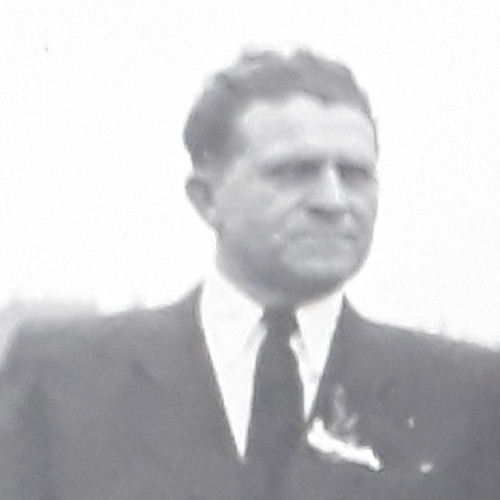Trofim Danieluk - Instytut Pileckiego

“Upon realizing the danger I was in, Ifled and hid among potato shoots. I owe my life to Trofim Danieluk, who said I hadn’t been home for the last three days, when asked by the murderers from the Ukrainian Insurgent Army” – reported Władysław Zubkiewicz.
The village of Czerniejów in the Volhynia region was inhabited mainly by Ukrainians, but there were also several Polish and mixed families. On 6 August 1943, Banderites from the neighboring village attacked Czerniejów, murdering Wiktoria Zubkiewicz and her daughters, Genowefa and Maria, among others. Wiktoria’s husband, Feliks Zubkiewicz, was seriously injured, but he managed to escape. That night, Wiktoria and Feliks’ only son Władysław did not return home with his wife and children. Instead, they spent the night at their neighbors’ house. When they were on their way back the following day, they heard shots and decided to hide in the field. The Banderites organized a search for Władysław. They asked Trofim Daneliuk,who lived nearby, about Władysław’s where abouts, but the Ukrainian did not turn Zubkiewicz in. He lied to the Ukrainian nationalists, saying that the Pole had been away from home for the last three days.
“Upon realizing the danger I was in, Ifled and hid among potato shoots. I owe my life to Trofim Danieluk, who said I hadn’t been home for the last three days, when asked by the murderers from the Ukrainian Insurgent Army” – reported Władysław Zubkiewicz (IPN GK 932/2).
By lying to the Banderites, Trofim Daneliuk was risking his life and the lives of his family members. That morning,theUkrainian nationalists killed fifteen other Poles in addition to Wiktoria, Genowefa and Maria Zubkiewicz. The aid provided by Trofim Daneliuk saved Władysław Zubkiewicz and his family from death. After the war, the Zubkiewiczs moved to Chełm and their children started their own families, which currently live in Poland and abroad. Trofim, hiswifeAgrypina andtheir five children hada farm in Czerniejów,where Trofim passed away around 1960.
In the photo, Trofim Danieluk in the Imperial Russian Army uniform, ca. 1915.
See also
- Petro Bazeluk (1903–1949)

awarded
Petro Bazeluk (1903–1949)
Mykola Bazeluk said that there was no difference between who was a Pole and who was a Ukrainian in Volhynia before the war. That all changed in 1943, when, as he put it, “Brother turned on brother.”
- Chaim Yisroel Eiss

awarded
Chaim Yisroel Eiss
(1876–1943)Cooperating with the Polish diplomats in Bern, he created a network to smuggle passports into the ghettos of occupied Poland.
- Jozef Lach (1905–1993)

awarded
Jozef Lach (1905–1993)
One night in October 1939, four men knocked on the door of Jozef and Žofia Lach’s home in Poprad, Slovakia. They came from the nearby Tatra Mountains, from occupied Poland.


